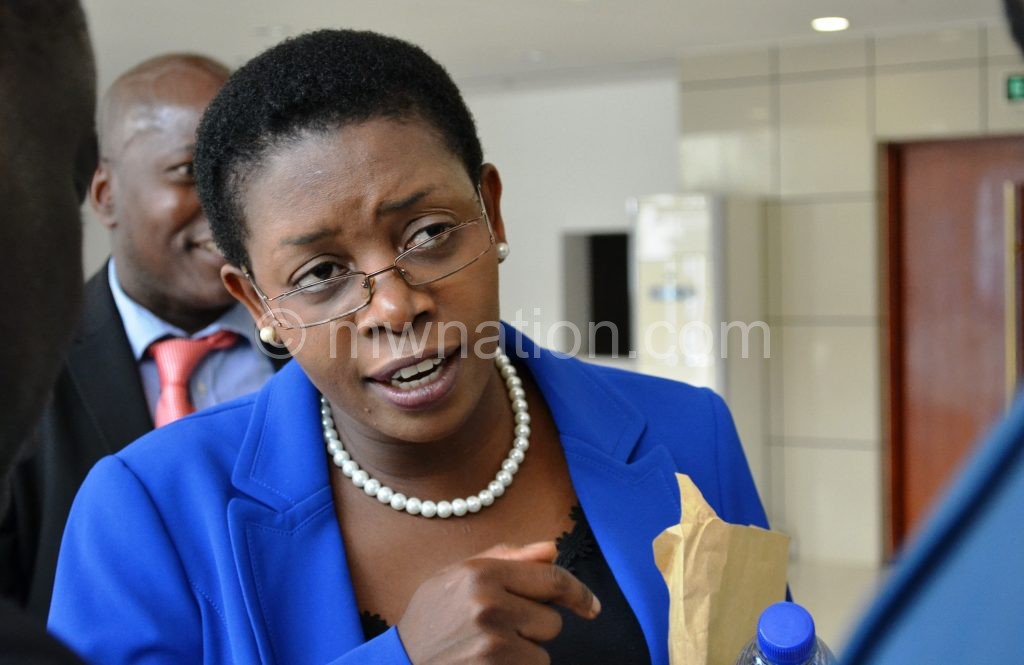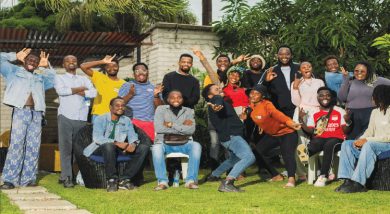‘Arts associations should be independent’
There is panic among the country’s arts associations following the phasing out of their reliable donor support from the Norwegian Embassy through its Cultural Support Scheme, which was being administered by the Copyright Society of Malawi (Cosoma). HOWARD MLOZI chats with Cosoma Executive Director Dora Makwinja on this.

Q1
Give us a brief background of Cultural Support Scheme?
A1
The Norwegian Embassy in Malawi established the Cultural Support Scheme in 2014, administered by the Copyright Society of Malawi (Cosoma). This grant scheme was particularly aimed at strengthening the capacity of rights holder associations such as Malawi Writers Union (Mawu), Musicians Union of Malawi (MUM), Poetry Association of Malawi (PAM) and Film Association of Malawi (Fama). Since its establishment, the associations have registered significant strides such as structure and rentals for the Blantyre Arts House which houses all arts associations. But the Cultural Support Scheme phased out in December last year.
Q2
.So, what is the way forward?
A2
. The Norwegian Embassy introduced the Cultural Fund whose administration is with The Humanist Institute for Co-operation with Developing Countries (Hivos). The purpose of the Cultural Fund is to contribute to a dynamic, free and diverse cultural sector for improved living standards, economic growth and poverty reduction. It also aims at strengthening the capacity of cultural practitioners to participate in democratic processes and have rights to freedom of expression.
Q3
.There seems to be a looming trouble in arts associations following the phasing out of the Cultural Support Scheme. Why is this the case?
A3
. Consequences are inevitable almost in any action, including the phasing out of the Cultural Support Scheme which has been a reliable source of support to the country’s arts associations. You may wish to know that the scheme had small grants aimed at promoting and strengthening the capacity of the associations so that they can serve the interests of their members better. This also saw the nine associations accessing office space and some running costs, in addition to having the opportunity of applying for small funding projects. So some of the challenges are inevitable because some of the benefits will no longer be there. But my advice to the arts bodies is to be independent all the time.
They should learn to achieve financial sovereignty. This is better than relying on the donor money all the time.
Q4
Why do you think arts associations still have weak financial muscle?
A4
There are many factors. But another reason could be the way they are structured and run. They may need to have executive arm that strictly do their core business to thrive.
Q5
What is Cosoma doing to help save the situation?
A5
We have embarked on a number of integrated arts development initiatives to help the growth of the artists and industry, as a whole. For example, we have a component of marketing and production which is aimed at coming up with legitimate marketing and distribution system for art works. There is also an arts Sacco which as saving and credit cooperative aimed at promoting saving culture and access to credit among artists in the country.
Q6
What is the relationship between Cosoma and arts associations?
A6
Basically, Cosoma was established in 1992 under Section 41 of the Malawi Copyright Act of 1989 to promote and protect the interests of authors, performers, translators, producers of sound recordings, broadcasters, publishers and in particular to collect and distribute any royalties or other remuneration. So, we are there to perform that and also facilitate innovations to ensure the growth of the creative industry. n





